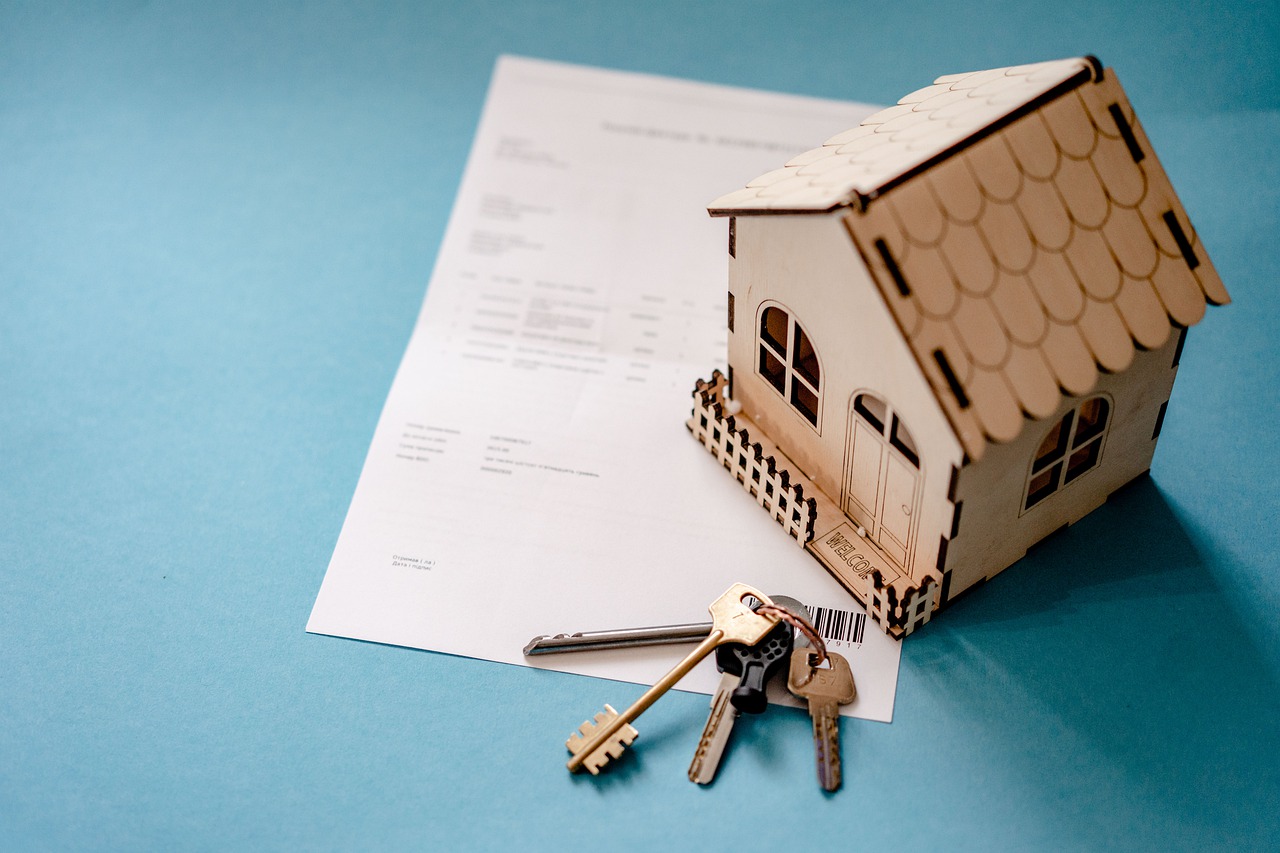The U.S. Federal Housing Administration is the largest insurer of residential mortgages in the world. The program has insured tens of millions of property loans since it was conceived in 1934 as part of the National Housing Act. FHA loans are especially popular with first-time homebuyers, along with those looking to refinance. We’ll walk you through the various types of loans the Federal Housing Administration makes available.
8 Types of FHA Loans
- Energy Efficient FHA Loan
- Adjustable Rate FHA Loan
- Basic Home Mortgage Loan 203(b)
- Manufactured (Mobile) Home FHA Loan
- FHA Condominium Loan
- FHA Reverse Mortgage (HECM)
- Rehabilitation FHA Loan 203(k)
- Graduated Payment FHA Loan
The Federal Housing Administration began as an integral part of Franklin Delano Roosevelt’s New Deal program, designed to make homeownership possible for a wider swath of the American public. Since then, it has made homeownership a reality for tens of millions of families – along the way, the FHA has expanded its selection of home loan products to meet the needs of borrowers over a wide variety of home types. Today alone, the FHA insures roughly 8 million American home mortgages.
👉 Truss Financial Group offers FHA loans to non-traditional borrowers. Get started today!
What Is an FHA Loan?
The Federal Housing Administration operates as a unit of the U.S. Department of Housing and Urban Development. The FHA backs home loans for many Americans to incentivize lenders to extend mortgages to lower-income buyers and to help provide options that make home ownership a reality for a wider group of Americans. If you’re a first-time homebuyer wondering how to get a mortgage loan, the FHA is a great place to start – especially if you have a lower credit score or haven’t saved 20% for a down payment.
The average conventional mortgage provided by a private bank requires a higher-than-average credit score, plus a typical 20% down payment or the purchase of private mortgage insurance (PMI) to cover the gap if the borrower’s down payment is less than 20%.
With an FHA-insured home mortgage, borrowers with lower credit scores can have access to a mortgage loan with reasonable terms and a low down payment of 3.5%. Typically, because the lender and the Federal Housing Administration are assuming some of the risk associated with the home loan, the property being purchased may need to meet some FHA guidelines and stipulations.
It’s important to keep in mind that the FHA does not actually loan money. Instead, it insures mortgages as an incentive for approved lenders to make these loans available to borrowers.
FHA Loan Requirements

While different Federal Housing Administration home loan products may vary slightly in their eligibility requirements, in general, a core group of eligibility criteria must be met.
FHA Appraisal Required
In order to take on an FHA mortgage loan, you must have the property you intend to purchase inspected by an FHA appraiser. The standards for an FHA appraisal are generally more stringent than a conventional mortgage. In addition to being assessed for value, your potential property must also pass muster for safety, soundness of construction, and adherence to local code restrictions. Your potential home must meet all FHA guidelines set forth by the U.S. Department of Housing and Urban Development for your FHA home loan to be approved.
Sufficient Credit Score
While FHA loans can be attractive options for borrowers with less than perfect credit, you must still be able to show a sufficient credit score to be approved. In general, you’ll need a credit score of at least 580 to be approved with a 3.5% down payment on your home. For borrowers with credit scores between 500 and 579, you may still be approved for an FHA home loan, but you will be required to put down a 10% down payment.
Appropriate Debt-to-Income Ratio
In most cases, you’ll need to maintain a debt-to-income ratio, or DTI, of no more than 31% – meaning that no more than 43% of your gross income is devoted to paying off debt, including your mortgage. In some cases, a mortgage lender could accept a DTI of up to 50%, but that is not guaranteed. In addition, most lenders would like to see that your monthly mortgage payment will represent no more than 31% of your gross monthly income.
Must Be Primary Residence
If you’re purchasing a vacation home or an investment property, including a home you’ll renovate and resell, an FHA loan will not be an option for you. In order to qualify for an FHA home loan, you must be able to show that the home you’re purchasing will be your primary residence. FHA loans are designed to lower barriers to homeownership, making buying a home possible for those that otherwise might struggle to meet loan eligibility requirements. The program is not intended to help real estate investors or fund vacation homes.
Proof of Steady Income
For FHA loan approval, you typically need to show that you have had steady employment and income for at least the immediate two years preceding your loan application.
You will be asked to provide documentation of your reliable source of income. Accepted documentation typically includes pay stubs, federal tax returns, and bank statements. You may also need to show documentation of assets, such as your checking and savings accounts, 401(k) or other retirement accounts, and any other places where you hold investments.
Able To Make Down Payment
With an FHA home mortgage, you must be able to make at least a 3.5% down payment, depending on your credit score. With lower credit scores, you will be required to make a 10% down payment. Before applying for your FHA home loan, make sure you have the financial liquidity to meet those down payment requirements since they are non-negotiable.
Requires Mortgage Insurance
When you take out an FHA home mortgage, you’ll be required to pay two different FHA mortgage insurance premiums. First, there’s an upfront mortgage insurance premium, which should equal 1.75% of your loan amount. This premium must be paid when the FHA borrower gets the loan, though its amount can be included in the total financed loan amount.
Additionally, you must pay an annual FHA mortgage insurance premium, which generally ranges from 0.45% to 1.05% of the home loan amount, depending on whether the loan features a 15 or 30-year term. The total home loan amount and the initial loan-to-value ratio also are considered when setting the annual mortgage insurance premium. The final annual premium amount then is divided by 12 and paid monthly.
No Recent Bankruptcy or Foreclosure
It’s recommended to wait for at least two years after a bankruptcy filing or three years after a foreclosure to apply for an FHA mortgage loan. In some cases, an FHA lender may make an exception because of unusual or extenuating circumstances.
What Are the Types of FHA Loans?

Under the broad umbrella of Federal Housing Administration loans, you’ll find several specific types of loans, each designed for specific circumstances. Let’s take a closer look at the specific types of home loans available under the Federal Housing Administration’s umbrella of home loan products.
Energy Efficient FHA Loan
An energy efficient FHA loan is designed to assist homeowners who want to make substantial upgrades to their homes in the pursuit of smarter and more sustainable energy use. These types of home improvements are not only better for the environment, but they also include the benefit of lowering utility costs – making the home more affordable overall for the homeowner and family.
The Energy Efficient FHA loan program began as a pilot program in 1992, using five states as the pilot group. The program was later expanded and made permanent in 1995. Under this program, the FHA will insure a mortgage loan to cover the costs of an energy efficiency package that may include solar panels or other improvements recommended by an energy efficiency expert.
These improvements can include everything from equipment and technologies to materials, labor, inspections, and a home energy assessment by a qualified energy assessor. An advantage for the homeowner is that they only need to qualify for the home purchase or refinance portion of the mortgage loan – not the portion of the home loan earmarked for the energy efficiency package.
It’s important to note that an assessment by an expert energy assessor is required for this home loan, and the assessment must outline opportunities to make energy efficient upgrades that are cost effective.
For the mortgage loan to be approved, the homeowner must use a trained and certified energy assessor that the Federal Housing Administration accepts. For loan purposes, a determination of cost effectiveness means that the improvements must cost the same as or less than the savings they will bring the homeowner. In other words, for an existing home, the energy improvements must pay for themselves in savings over their expected useful life. For new construction, upgrades are considered cost efficient when they exceed standards established by the International Energy Conservation Code.
Energy Efficient FHA loans are approved and administered through a network of FHA-approved lenders across the country.
Adjustable Rate FHA Loan
An adjustable rate FHA home loan features an interest rate that periodically changes at various intervals over the life of the mortgage loan. In general, interest rates on adjustable rate FHA loans start lower than the rates for fixed-rate FHA loans or conventional loans, and then rise over time. This is an option that can make sense for new homeowners who anticipate a substantial rise in income or assets over the life of their home loan, which will allow them to easily absorb the rising interest rates over time. This option also may make sense for homeowners who anticipate selling the home before the mortgage rate has an opportunity to rise.
An adjustable rate FHA mortgage is composed of four major parts: the index, the margin, the interest rate cap structure, and the initial interest rate period.
Here’s how it works: When you take out an adjustable rate FHA loan, you are assigned an initial interest rate that’s typically fairly low. At this point, your lender will disclose the margin associated with your home loan. Once the initial interest rate period is complete, your lender will calculate your new interest rate by adding a margin to the index. As the index continues to adjust over time, so will your interest rate.
Commonly used indexes for FHA adjustable rate mortgages are both the Constant Maturity Treasury Index, which quantifies the weekly average yield of U.S. Treasury securities, adjusted to a constant maturity of one year, and the one-year London Interbank Offered Rate. It’s important to note that increases and decreases in your interest rate will be limited by the interest rate cap structure of your mortgage loan, no matter how high your index rises. You might have an annual cap on your home loan, which controls the amount your interest rate can rise or fall in any given year, or a life-of-the-loan cap, which restricts the highest and lowest interest rate you can pay over the life of your mortgage.
Typically, you can choose between a standard one-year adjustable rate mortgage or three hybrid adjustable rate products. Hybrid mortgages allow for a fixed rate mortgage for the first three, five, seven, or 10 years of the loan’s life. At the end of the fixed rate term, the interest rate then fluctuates according to the assigned index.
For one and three-year adjustable rate mortgages, your rate can increase each year by one percentage point – or a total of five percentage points over the full life of your home loan. For five-year ARMs, the interest rate may increase either by the same one percentage point per year and five percentage points total, or by two percentage points per year and six percentage points over the life of the loan. Seven and 10-year adjustable rate mortgages can increase only by two percentage points per year or six total percentage points over the life of the mortgage.
Basic Home Mortgage Loan 203(b)
The basic 203(b) home mortgage loan allows the home buyer to borrow money for the purchase or refinance of their home, as well as for the FHA mortgage insurance required. When a home buyer takes out a 203(b) home loan, the loan itself is provided by an FHA approved lender, and the mortgage is insured by the U.S. Department of Housing and Urban Development.
To be eligible for this loan type, the borrower must meet basic Federal Housing Administration qualifications related to credit score. The borrower also must be eligible for at least 96.5% financing. The borrower must agree to the terms of the home loan and must be using the mortgage to purchase or refinance a home consisting of one to four units/individual structures.
Manufactured (Mobile) Home FHA Loan
FHA loans for manufactured homes make it possible for borrowers to access the financing to purchase a mobile home. In most cases, this is a more cost-effective option, and it may be attractive to borrowers with less-than-stellar credit.
While the overall basics of taking out an FHA loan for a manufactured home are very similar to those for site-built home loans, it is worth noting that manufactured FHA home loans are divided into two categories: Title I and Title II.
Title I loans provide limited financing options for manufactured homes, regardless of whether they are attached to a specific piece of land. Title II loans require a manufactured home to be attached to land that the home buyer owns. Title II loans typically deliver more attractive overall terms for borrowers.
When you apply for a manufactured FHA home loan, reviewers will look for specific items before approving your loan amount. This includes verifying that the manufactured home is connected to both water and sewer services, along with having all-weather road access in place. In addition, the home’s living area must measure at least 400 square feet, it must feature a visible HUD seal on its exterior, and its towing hitch, along with any exterior running gear, must be removed. As a final requirement, the borrower must show that the home is taxed as real estate.
In cases where borrowers choose to purchase a manufactured home and its associated land as a single package, the Federal Housing Administration will insure what’s known as a construction-to-permanent loan. With this loan type, the price of the home, the land, and all costs associated with putting the home in place, are all rolled together into one mortgage.
With this option, you must go through a few extra steps, like providing a detailed, itemized list of costs associated with home setup, showing that your foundation meets specifications, providing documentation that you own the land, and showing proof that the manufactured home is attached to that land and taxed as real estate.
FHA Condominium Loan

For many borrowers, a condominium is a good option for owning property and building equity. In some cases, the FHA will appraise and assign a formal FHA ID to either an individual condominium unit or to an entire condominium community. These units then are eligible for FHA-backed mortgage loans. If a borrower has selected a condominium for purchase, but neither it nor its community is FHA-appraised, the borrower also can request that the unit be considered for Federal Housing Administration backing.
The process is a little more involved than when purchasing a single family home. The FHA has to evaluate the individual unit and the financial health of the entire condominium community since that affects the overall property value. In general, the entire condo community must meet basic guidelines. The borrower will need to schedule an FHA appraisal and recertify it every three years to maintain documentation that the individual unit meets agency standards.
It’s important to note that there is often resistance from an existing condominium community or formal condo association when it comes to both unit and community certification. The lenient terms of an FHA loan lead some to believe that FHA borrowers won’t be able to afford the homeowners insurance, upkeep costs, and other financial obligations associated with some condo associations.
Once a condo is approved for the FHA program, a borrower must meet the credit score and debt-to-income ratio requirements set forth by the lender. The borrower must also provide at least a 3.5% down payment and be able to cover mortgage insurance costs, which typically include a 1.75% up-front premium, along with an annual fee that ranges from 0.45% to 1.05%.
FHA Reverse Mortgage (HECM)
A reverse mortgage is a vehicle that allows seniors with substantial equity in their homes to use that equity for income. Also known as a Home Equity Conversion Mortgage, the FHA-backed reverse mortgage is the only loan vehicle of its type to be approved by the U.S. federal government. With a reverse mortgage, the borrower is allowed to withdraw a portion of the home’s equity. The amount that can be withdrawn will vary according to several factors, including the age of the borrower, the current interest rate, the lesser of the home’s appraised value, the HECM FHA mortgage limit, or the home’s sales price.
Taking out an HECM is a big step. To participate in this program, borrowers must meet with an HECM counselor or loan officer to explore all of their options, including whether a reverse mortgage is the best financial step forward. After this step is complete, borrowers must meet the eligibility criteria for a reverse mortgage.
Eligibility requirements for an FHA reverse mortgage include:
- Be at least 62 years old
- Either owns a home outright or has paid down the original mortgage to a considerable extent
- Property must be the primary residence
- Current on all federal debt
- Can show sufficient income to pay other costs associated with owning the home, such as property taxes
- Participate in a session with an HECM counselor
In addition, the home itself must be either one to four individual units, manufactured home or an individual condo unit, or an entire condo community that is approved by HUD and meets Federal Housing Administration requirements.
Rehabilitation FHA Loan 203(k)
An FHA rehabilitation loan 203(k) allows both homebuyers and homeowners to finance a loan amount of up to $35,000 to repair, improve or upgrade their home. Homeowners could use a rehabilitation loan to remodel a home in preparation for sale, while new homebuyers could use this loan type to tackle repairs and/or remodeling projects to make their new home ready to move into.
Entering into a 203(k) loan allows homeowners to tackle purchase and renovation costs with one home loan, avoiding the complicated paperwork, high interest rates, and balloon payments often associated with separate financing of remodeling costs. This rehabilitation loan program helps homeowners repair and rehabilitate their homes – which is a major catalyst for neighborhood and community revitalization across the country.
Graduated Payment FHA Loan
A graduated payment FHA loan is structured so that the monthly mortgage payment increases over the life of the loan, according to a predetermined schedule. As the mortgage loan amortizes, eventually the borrower’s equity gains traction. This type of mortgage generally is developed according to a 30-year term, but many borrowers can pay off the loan early, depending on the graduated plan they choose. For borrowers who plan to remain in their home for 30 years or more and are comfortable with even the highest monthly payment, this mortgage loan type can be a smart choice. It comes with a near-guarantee of early payoff, plus the other benefits associated with a standard FHA mortgage.
What’s the Difference Between an FHA Loan and Conventional Loan?

The major difference between an FHA loan and a conventional loan is that an FHA loan comes with the backing of the U.S. federal government, while a conventional loan does not. Since FHA loans are designed to eliminate barriers for home buyers who may have trouble qualifying for a conventional mortgage loan, they generally feature more favorable terms for borrowers. This typically includes a lower credit score threshold than the score range typically required to qualify for a conventional home loan. FHA loans also require a lower down payment than conventional loans.
For example, an FHA loan usually requires a down payment of 3.5% of the price of the home, as long as the FHA borrower has a credit score of at least 580. For conventional loans, a down payment this low would be reserved for buyers with high credit scores and sufficient documented savings. Borrowers may be able to qualify for an FHA loan with a credit score as low as 500, while the minimum credit score for a conventional home loan usually starts around 620. For both types of loans, a higher credit score results in a better interest rate and terms.
Another difference between the two types of home loans is how the mortgage lender considers debt-to-income ratio, or DTI. This number is the percentage of monthly pre-tax income that is devoted to paying off debt. This includes the borrower’s mortgage, student loans, auto loans, child support, and any minimum payments toward credit card debt. You can qualify for an FHA home loan with a DTI of up to 50%, whereas lenders of conventional loans favor home buyers with DTIs of less than 43%.
FHA and conventional loans also differ when it comes to their corresponding mortgage insurance. If you’re taking on a traditional mortgage with less than a 20% down payment, the lender will require that you also purchase mortgage insurance. This extra insurance simply protects the mortgage lender in case you default on your home loan, and it isn’t generally required if your down payment is a minimum of 20% of your home’s purchase price.
Private mortgage insurance costs will vary according to your credit score and the size of your loan. As you may expect, borrowers with higher credit scores will see more favorable PMI premiums. With a conventional mortgage, your private mortgage insurance premiums automatically will stop once your home equity reaches 22% of your home’s purchase price.
You may also be required to purchase mortgage insurance with an FHA loan, but the cost of your mortgage insurance premiums is not determined by your credit score. If your down payment is less than 10% of your home’s purchase price, your mortgage insurance will last throughout the life of your home loan, unless you refinance into a conventional mortgage at some point. If your down payment is higher than 10%, you will pay mortgage insurance for the first 11 years of your loan.
Both FHA and conventional home mortgages also feature lending limits. The FHA loan limit is $420,860 for areas with lower costs of living and $970,800 for areas where home prices are documented as very high. In contrast, conventional loans are capped at $647,200 in most areas of the United States.
It’s worth noting that the traditional FHA home mortgage is only one type of mortgage insured by the U.S. Federal Housing Administration. The FHA also backs other types of loan programs, such as the energy-efficient mortgage program, the home equity conversion mortgage program (otherwise known as a reverse mortgage), the graduated payment mortgage program, and mortgages designed specifically for home renovations.
Is an FHA Loan Right for Me?
For over 80 years, the Federal Housing Administration has helped over 40 million Americans obtain the financing needed to purchase a home.
If you think an FHA loan is the right choice, you may want to have a productive conversation with an FHA approved lender. If you’re uncertain about whether you can qualify for a mortgage loan, help is available. Contact your nearest FHA approved lender and discuss all of your options to find out which FHA loan product is best for you and your family.
With an FHA home loan, you can stop renting and begin building equity in your own home, which can serve you well far into the future. Find out today if you qualify for an FHA loan and take the next steps toward owning the home of your dreams.
👉 Truss Financial Group offers FHA loans to non-traditional borrowers. Get started today!






